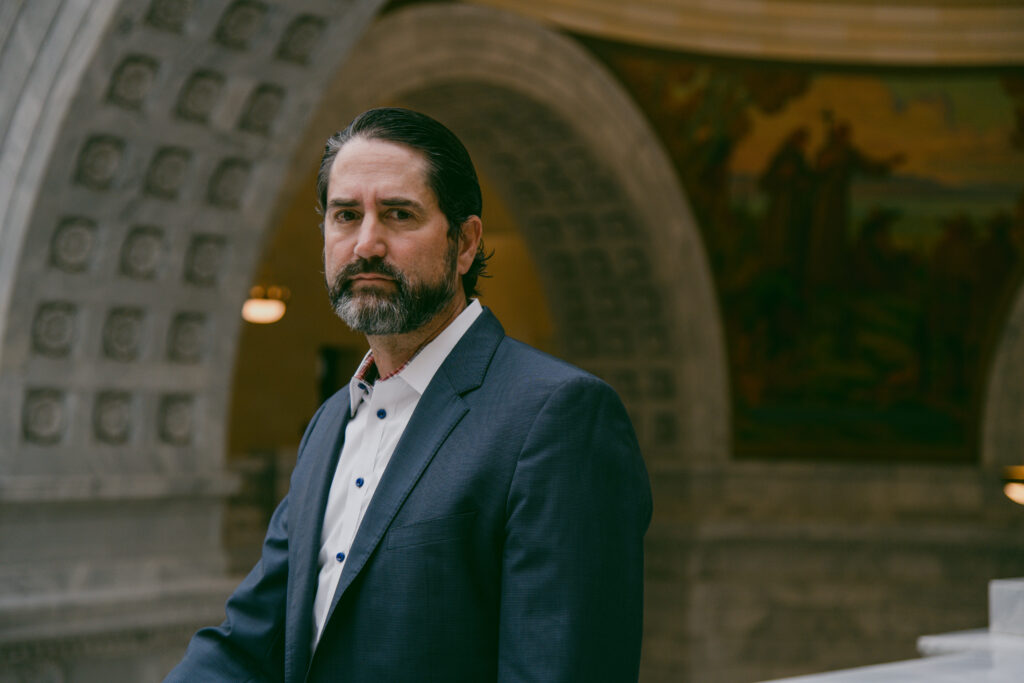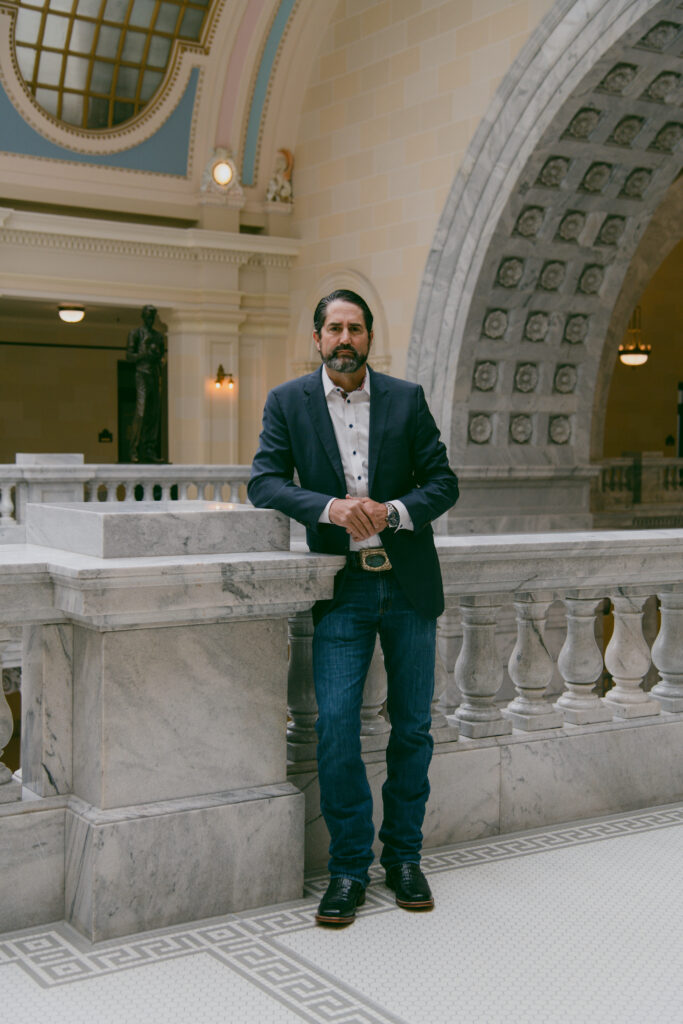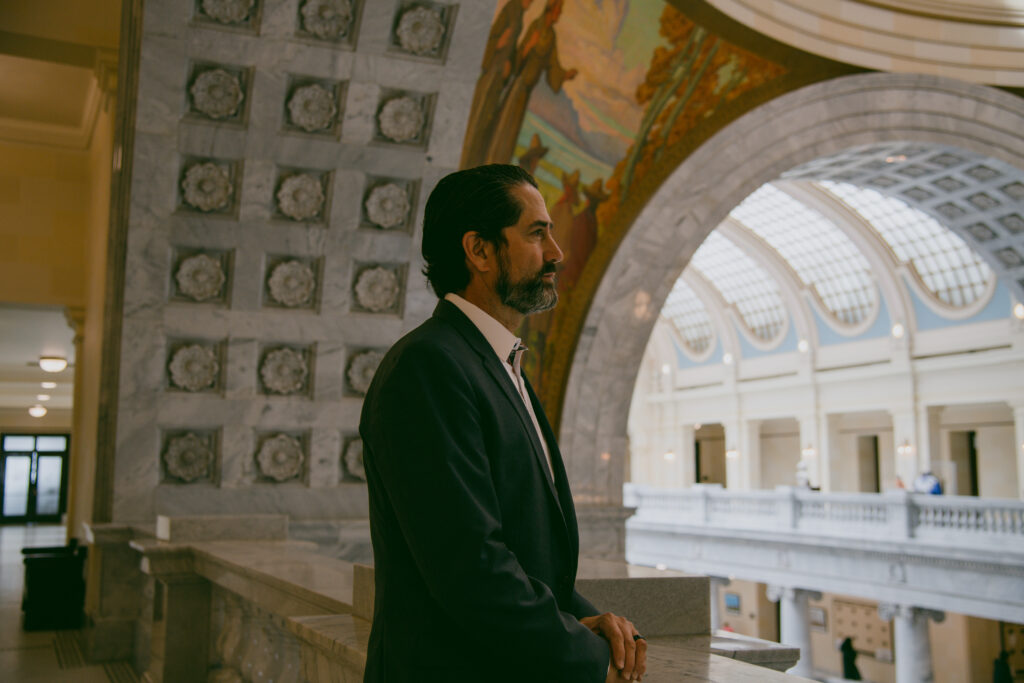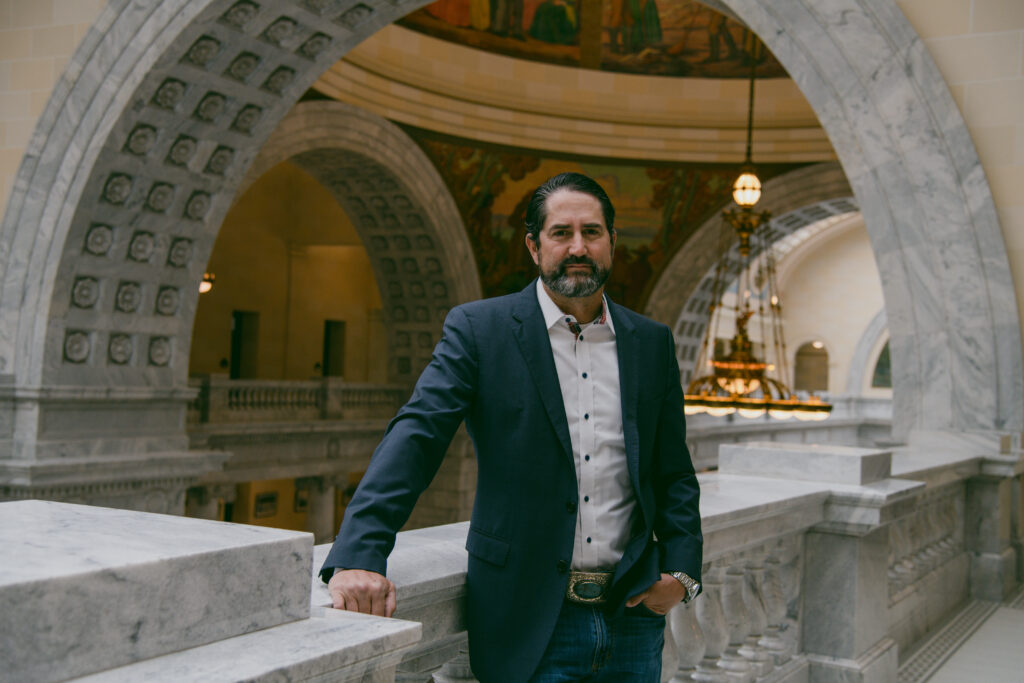
Imagine a company that has a nearly 80% failure rate–would anybody on the Left or Right call that a success? Because that is the most recent data on rearrest rates across this country. The data isn’t partisan; what splits us along party lines is our approach to reform.
The criminal justice system has been a part of my life since I was a boy. My dad was a peace officer. Respect for the law was ingrained in us early. When I was 12, my sister, who was in college, was walking home from a dance when three guys in a black Trans Am pulled over and started chasing her. They kidnapped her and they raped her. Then they drove around discussing what they were going to do with her body. At a stop sign she managed to kick the seat forward enough to jump out and run for her life.
She called my father and the police. And so at 12 years old, I ended up in the backseat of my dad’s car as we drove around that night looking for the Trans Am. They were never caught.

My first real career job after law school was as a federal prosecutor. I did that for 10 years. My last case was prosecuting the people who kidnapped and raped Elizabeth Smart, who was just fourteen when it happened.
I was really trained and intent on putting the bad guys away.
But at the same time, I started to become aware of the inadequacies, the failures, of the criminal justice system. The disservice it was doing to communities. The culture of prosecution, which doesn’t think about the revolving door that is our prison system. I never had a single discussion about recidivism rates as a prosecutor.
When I left the government I started working on criminal justice policy and the defense side of things. I helped draft predecessor bills to the First Step Act, which was meant to safely reduce the federal prison population. I started advising Republicans and Democrats in the House, the Senate, and the White House on system reform.

In truth, the system is fallible. Excessively punitive. It can also be very effective. It is possible, after all, to seek and get justice without the destruction, inconsistency, and hypocrisy of the law.
Conservatives always talk a big talk about holding government accountable, but they’ve given carte blanche to those in the criminal justice system, especially prosecutors, to wield power without transparency or accountability.
I am still all for putting the bad guys in jail. But while significant punishment is appropriate for those we are afraid of, it’s not necessarily right for those we’re simply mad at.

Today my organization uses data to go to conservatives and say, “Hey, you have to start looking at ways to improve and fix the system if you want to reduce crime.” Because 95% of incarcerated people do get out. And if 80% of them are reoffending, what does that tell us about how well incarceration rehabilitated them?
If we really want to prevent what happened to people like Elizabeth or my sister from continuing to happen, we have to be willing to change the criminal justice system and to look at every aspect of it.
Passing laws that allow us to put someone away for an even longer period of time just means you got tough on one individual. But you didn’t reduce crime. And we have the data to prove it.


Imagine a company that has a nearly 80% failure rate–would anybody on the Left or Right call that a success? Because that is the most recent data on rearrest rates across this country. The data isn’t partisan; what splits us along party lines is our approach to reform.
The criminal justice system has been a part of my life since I was a boy. My dad was a peace officer. Respect for the law was ingrained in us early. When I was 12, my sister, who was in college, was walking home from a dance when three guys in a black Trans Am pulled over and started chasing her. They kidnapped her and they raped her. Then they drove around discussing what they were going to do with her body. At a stop sign she managed to kick the seat forward enough to jump out and run for her life.
She called my father and the police. And so at 12 years old, I ended up in the backseat of my dad’s car as we drove around that night looking for the Trans Am. They were never caught.

My first real career job after law school was as a federal prosecutor. I did that for 10 years. My last case was prosecuting the people who kidnapped and raped Elizabeth Smart, who was just fourteen when it happened.
I was really trained and intent on putting the bad guys away.
But at the same time, I started to become aware of the inadequacies, the failures, of the criminal justice system. The disservice it was doing to communities. The culture of prosecution, which doesn’t think about the revolving door that is our prison system. I never had a single discussion about recidivism rates as a prosecutor.
When I left the government I started working on criminal justice policy and the defense side of things. I helped draft predecessor bills to the First Step Act, which was meant to safely reduce the federal prison population. I started advising Republicans and Democrats in the House, the Senate, and the White House on system reform.

In truth, the system is fallible. Excessively punitive. It can also be very effective. It is possible, after all, to seek and get justice without the destruction, inconsistency, and hypocrisy of the law.
Conservatives always talk a big talk about holding government accountable, but they’ve given carte blanche to those in the criminal justice system, especially prosecutors, to wield power without transparency or accountability.
I am still all for putting the bad guys in jail. But while significant punishment is appropriate for those we are afraid of, it’s not necessarily right for those we’re simply mad at.

Today my organization uses data to go to conservatives and say, “Hey, you have to start looking at ways to improve and fix the system if you want to reduce crime.” Because 95% of incarcerated people do get out. And if 80% of them are reoffending, what does that tell us about how well incarceration rehabilitated them?
If we really want to prevent what happened to people like Elizabeth or my sister from continuing to happen, we have to be willing to change the criminal justice system and to look at every aspect of it.
Passing laws that allow us to put someone away for an even longer period of time just means you got tough on one individual. But you didn’t reduce crime. And we have the data to prove it.
